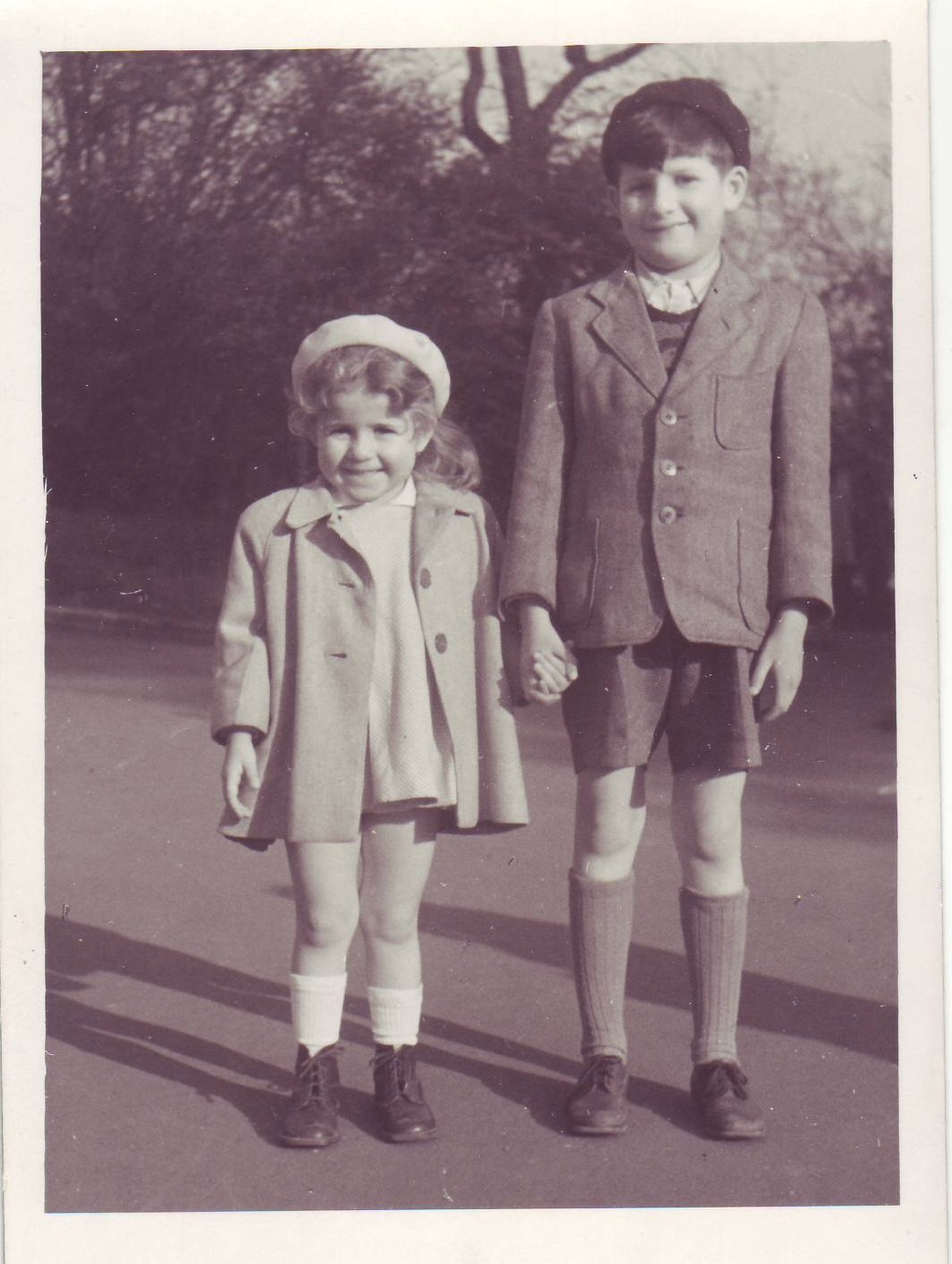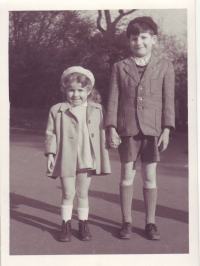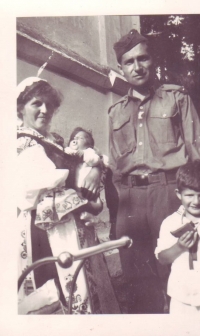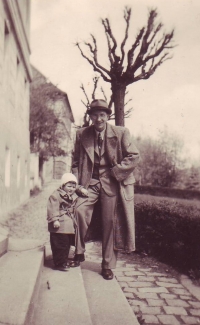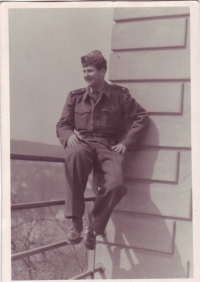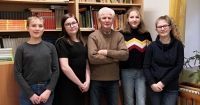“There were foreign radio broadcasts people were listening to, it was forbidden, but people did it anyway, but you couldn't talk about it much and they were also jamming the signal. Which meant that the Free Europe broadcast stated: 'This is Free Europe, let us tell you what had happened in your country today.' And at the same time you heard this incessant buzz. So you had to tune all the time, and sometimes it was incomprehensible and sometimes you could listen to it. Outside Prague there was better reception, and if I would say: 'Do you know what Free Europe just said? That it's gonna crack soon!' That was the phrase, to crack, that the Communist rule would be overthrown, that is was going to crack. Our parents told us: 'Don't, just don't!' Of course we knew that at school we were supposed to say: 'The Soviet Union is our model, long live comrade Stalin, we love Stalin, as he is our daddy, we love... and so.' After we came home we were discussing how our day was. But not everyone was like that, in some families, the father was an ardent communist, so the kids probably had to say the same stuff at home they had to say at school. And step by step, the people... they started to be fed up with this, as it had been just too much, you couldn't hang out just the Czechoslovak flag, it had to be next to the Soviet flag. On every anniversary you had to have Czechoslovak and Soviet flags hanging from you window. You couldn't play just our national anthem, as after it ended, there had to be the Soviet anthem being played. On the anniversary of February, when the Communists took over, or on the anniversary of the October revolution, you had to have those flags pasted in your windows, the more the better. Sometimes you couldn't even seen inside because of that. President Gottwald, Lenin, Stalin, Marx and Engels, those four pictures, and this white dove people would cut out and paste it, this peace dove, that was the thing: 'Hooray for peace!' And to all those American warmongers: 'Don't rejoice as we will destroy you!' And those pictures, there was this muscular worker holding the Soviet flag and at his feet an American billionaire, crouching to him, with the U.S. flag, and the Soviet worker was aiming at him as he would destroy him. Well such stuff had been just everywhere, and of course, as it lasted for so long, people weren't stupid and they were thinking: 'That's just enough.'”
